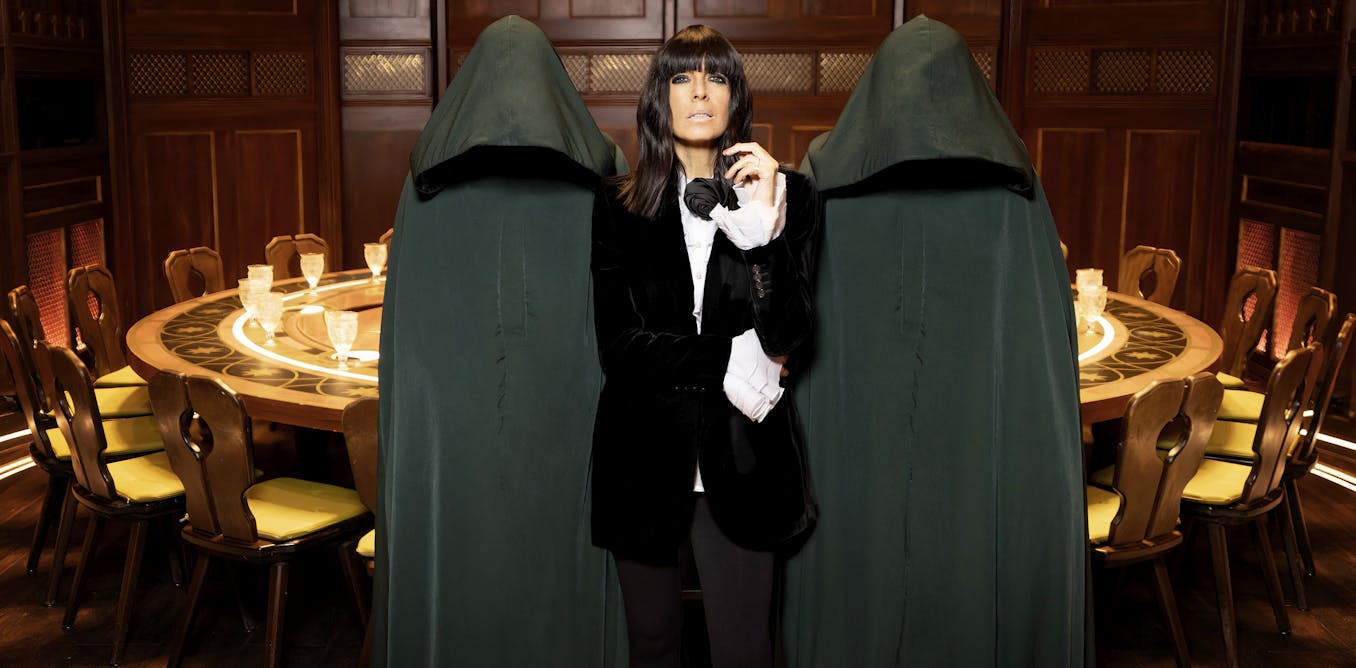With the lineup of the upcoming celebrity series of The Traitors recently leaked online, people are once again debating the best strategies that players might use to succeed. But a player’s voting history can also reveal the psychological dynamics at play, particularly alliances they may be subconsciously forming.
For those who aren’t familiar, the premise of the show is that each player is given the role of either “faithful” or “traitor”. Only the traitors know everyone’s roles in the game. If the faithful players eliminate all of the traitors by the end of the game, they divide the prize money equally among themselves. However, if one or more traitors remain by the end, all of the money goes to them instead.
There are two ways for someone to be eliminated from the game. First, all of the players vote on who to “banish” at the round table each day. Second, the traitors decide on one person to “murder” overnight, who is then removed from the game before breakfast the following morning. There are also occasional tweaks to this format depending on the stage of the game.
Ideally, faithful players would spot the lies that traitors tell. However, research shows that people don’t fare much better than chance at doing this, although certain individuals (who are often found to be working in law enforcement) or specialised groups, such as members of the US Secret Service, may be.
Read more:
Why we’re so bad at spotting lies – most of us only perform slightly better than chance
Instead, players may base their decisions on unreliable biases. In a game where there’s so little to go on, they risk being blinded by the trustworthiness of a (fake) Welsh accent, for example, or drawing suspicions for simply being too quiet or too noisy. After all, there is a lot of behaviour that people often incorrectly link with deception. For instance, westerners commonly associate someone averting their gaze with lying but researchers have shown that looking away isn’t linked to deception.

Andrii Yalanskyi/Shutterstock
Using voting behaviour as evidence
Information from interactions with other players can be unreliable, but players also get to see how others vote at the round table. And this is where real evidence can be found.
The faithful players have little to go on, so they end up voting for anyone – faithful and traitors alike. In contrast, traitors can direct their votes only at the faithful. If we combine these ideas, we see that traitors are more likely to be voted for by faithful players, even if this is by accident.
The traitors don’t tend to vote for each other because they naturally form an alliance, working together to shape the game. Their secret meetings in Traitors’ Tower, shared uniform (a cloak and hood), and power to murder the faithful, construct a sense of “us versus them”. In fact, very little is needed for people to start behaving this way. Known as the minimal group paradigm, research has shown that simply segregating people based on their preference for certain artists or their eye colour is enough to change the way they behave towards each other.
They may be happy to deceive the faithful, but the traitors are generally willing to trust each other. This mirrors a 2018 study where “deviant” study participants (who cheated on a task) felt connected to their team and trusted its members when the team engaged in coordinated acts of deviance (helping each other to cheat). Although they knew logically that their team shouldn’t be trusted, their sense of connection led to a feeling of trust nonetheless.
Do voting records actually reveal players’ roles?
Conveniently, all of the voting records for the show have been collated online. Let’s first exclude voting rounds which restrict the traitors’ options. During a round table which results in a traitor’s banishment, most players have voted for that traitor. There is good reason for other traitors to jump on the bandwagon at that point, to blend in and appear more faithful. Similarly, voting is limited after a tie, where the remaining options may force particular decisions.
After excluding these two types of voting context, I investigated the votes for players who were traitors at the time of voting (rather than switching to this role later on) for the three series of the UK show. I also considered other completed series of English-language versions of the show: the US, Australia, Canada and New Zealand.
Altogether, 95% of the 76 votes for traitors were cast by faithful players. Remember Jake from series three earlier this year? As a faithful player, he voted for Linda right at the beginning of the game. When Linda was later revealed as a traitor, Jake’s abilities were championed by the other players, earning him the nickname “traitor hunter” and convincing them that he was faithful.
So whenever a traitor is banished, players should consider who voted for that traitor in previous round tables – as we’ve seen, those votes probably came from the faithful. However, as the game progresses, there’s always the possibility that a faithful player could later be “seduced” into becoming a traitor, so it’s important to keep this in mind too.
Players may not be able to rely on spotting “tells” or other cues to deception in the game, but there are always patterns in the ways people behave. You just need to know where to look.
![]()
Robin Kramer does not work for, consult, own shares in or receive funding from any company or organisation that would benefit from this article, and has disclosed no relevant affiliations beyond their academic appointment.



